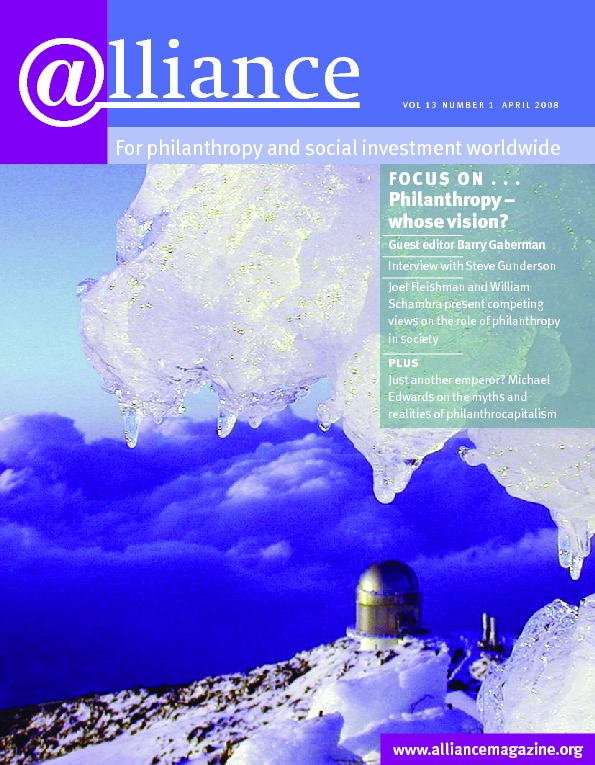Aid for HIV/AIDS prevention and treatment continues to increase and will do so for the foreseeable future, but how well are these resources used? How can foundations collaborate more effectively in combating HIV/AIDS? Should assistance for HIV/AIDS be a separate category or should it be incorporated within wider programme areas? These were among the main questions debated by the European HIV/AIDS Funders Group’s (EFG) second conference, hosted by the Diana, Princess of Wales Memorial Fund in London in late January.
The 50 or so participants, who came from foundations, bilateral and multilateral funders, and civil society organizations, recognized the increased importance of the relationship between private foundations and bilateral donors: foundations are innovative and quick-moving, but do not have the ability to scale up smaller grassroots projects in the same way that bilateral government funders can. Large-scale, bilaterally funded initiatives, however, tend to progress slowly, all too often hampered by lengthy and bureaucratic decision-making processes.
One of the biggest challenges facing the foundation sector is getting foundations to collaborate. Foundations need to become more dynamic and adventurous in their programming. Their natural diversity needs to be understood by their peers, allowing collaborations to get the best out of the different approaches taken by each. Furthermore, foundations need to develop the courage to take risks and to be open about their failures so that others can learn from their experience.
Is HIV/AIDS a separate sector or should it be integrated into programmes with a wider focus, such as poverty reduction or food and water security? One of the negative effects of HIV/AIDS exclusivity has been increased funding competition with other communicable diseases, with funding in the AIDS sector increasing disproportionately to that in other sectors. But one of the positive outcomes has been the leveraging effect HIV/AIDS funding has had – as a catalyst for the generation of new resources, it has allowed funders to branch out and fund new types of intervention.
For more information
Contact EFG Coordinator Thomas Crowe at info@thomas-crowe.de or visit http://www.hivaidsfunders.org
Contact EFG Coordinator Thomas Crowe at info@thomas-crowe.de or visit http://www.hivaidsfunders.org






Comments (0)